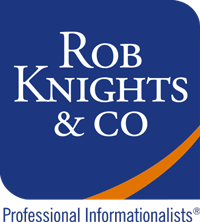How Do You Protect Against the Unexpected?
How Do You Protect Against the Unexpected?
In professional services industries, our livelihood is essentially linked to the continuity of revenue generated by the provision of services to our clients. Depending on the particular service, our interaction with our clients may be a one-off in nature or it may be more repetitious. Whether we like it or not, most advisers and other professionals begin to form a bond or relationship with their clients.
Clients return to engage our services for many reasons; because of our expertise, because we do a good job, because we meet and satisfy their needs. If there wasn’t a positive reason to return to a service provider, clients won’t, it’s that simply.
Alternatively, for some, the effort of changing a service provider can seem all too hard. It may not necessarily mean that a client is super happy and satisfied with their current adviser, it may just be that they can’t be bothered going through the hassle of finding someone new. Naturally, as advisers, we hope the former rather than the latter scenario is mostly true. Either way, year on year, these clients continue to return to our businesses generating valued revenue.
However, as advisers who generate a living through personal service and advice, what happens if something happens to us? Unfortunately, I am seeing more and more of this each year. The stories are so heart wrenching and certainly not only involve our more senior practitioners.
Just to mention a few; we’ve been contacted by families of advisers who have had strokes, have been seriously injured or died in accidents, and others who have lost their long or short battle with the big C. Invariably, the family ends up with an operating business that they know very little about, having to make key decisions about matters that are completely foreign to them.
At this point I’m sure many people are saying to themselves, ‘that’s fine, I have a will and/or guardianship in place, I have appropriate insurances’, which is great. You would be surprised the number of times I come across circumstances where these key areas are not in place or are not current. Obviously, key points to tick off.
While the estate or family may be the recipient of an insurance payout or be able to follow directives laid out in a will, I have yet to experience a situation where this adequately addresses what to do with the business. Questions such as; What do we do with the business? What do we tell clients? How and are we able to keep the business running until it is sold? Do we just tell clients to go elsewhere? What are we actually selling? I don’t know anything about this business, so what do I do? How do we get enough information about the business to sell it?
In these types of businesses, even where tight relationships are held between the previous adviser and the clients, there is likely to be a realisable value that can eventually be paid to the estate or family. However, the sum will be significantly dictated by how quickly actions take place following the demise of the practitioner.
For those in partnership with others, there may or may not be specific legal directives around how the equity or ownership in that business is to be addressed following an individual’s incapacitation or death. In larger firms, these types of scenarios are generally well documented and addressed, but it is always good for family and representatives to know what these steps are.
For smaller practices, questions such as ‘Who will buy this equity’? Do the other equity holders have first right of refusal? What happens if other equity holders don’t wish to buy this equity? How is a value determined for this equity? What sort of timeframes exist for achieving an outcome? Can the clients or fee base be sold externally to the current practice? Will my loved one’s colleague act in our best interest? Can the other equity holders assist with servicing these clients until an outcome is achieved?
Depending on how the practice runs, partners or colleagues may or may not be reasonably familiar with other clients who they do not service in the firm. This may have an impact upon the continuity of those clients and any likely value to be realised from such equity.
As you can see from these questions, it is an complete minefield, but one thing is absolutely essential, proactive and early action definitely helps secure a better value and eventual price than doing nothing. So, it’s just about knowing who to contact and what they can do to help protect this asset.
For sole practitioners, this is even more important. The value or likely sale price of a sole practitioner practice starts to deteriorate from day dot that the owner is not available in the business. Being prepared for such unexpected events is essential, this point I cannot emphasis enough. Again, wills and insurances are great, but they don’t practically address what to do about these types of businesses, the clients and relationships, when something terrible happens to the key contact and owner.
As you may gather, this is something that I am very passionate about because I have worked through this with clients and I personally have had first hand experience through our own business. For sole practitioners looking for that additional assistance or protection, we have a specific service just for you – Practice Protection.
Please don’t hesitate to contact me on (02) 9233 4333 for a confidential discussion.
